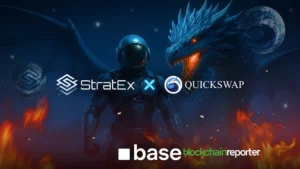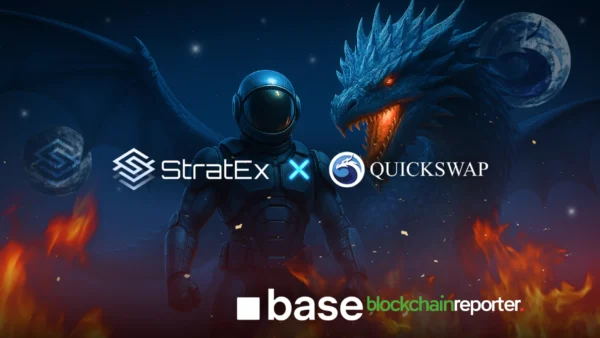
- 0.2. Q1: Can you briefly explain the benefits of interoperability?
- 0.4. Q2: Why is interoperability seeing such an increased interest right now?
- 0.6. Q3: Where does the importance of interoperability fall within the industry?
- 0.8. Q4: Do you believe the interest will continue to grow in the near future?
- 0.10. Q5: How does Router Protocol's recent victory in ByBit's ByVote reflect the emphasis on interoperability infrastructure in the cryptocurrency industry?
- 0.12. Q6: What is Router doing to drive the interconnectedness of the blockchain space?
- 1. The Way Forward
Blockchain interoperability has long been talked about but has only recently been seeing the attention it deserves from both industry leaders and investors. Router Protocol, a leading interoperability company in the space, has seen immense interest from the Bybit community during the ByVote process of getting listed on the popular exchange.
The interoperability token received over 60 million votes, beating other tokens by greater than 10:1. Ramani Ramachandran, CEO of Router Protocol, explains why blockchain interoperability is paving the way for a more interconnected and decentralized ecosystem, and why the interest is coming now.
Q1: Can you briefly explain the benefits of interoperability?
Interoperability has the power to connect the entire decentralized blockchain space, allowing each chain to benefit from users, liquidity, and the popularity of all connected blockchains. Shared liquidity is the biggest immediate benefit, and as the industry grows it can align projects under the mantra of “A rising tide lifts all boats”.
Q2: Why is interoperability seeing such an increased interest right now?
I believe that, as the industry matures, infrastructure and interoperability will continue to take center stage. These are the truly important and fundamental aspects of the technology we all rely on, and average crypto users will slowly prioritize this more and more over the typical “hyped” sectors of the space.
Q3: Where does the importance of interoperability fall within the industry?
Interoperability is perhaps the most important aspect of our industry, and what can truly set us apart from other private networks. When we are all connected, private blockchains will not stand a chance and decentralization will truly shine.
Q4: Do you believe the interest will continue to grow in the near future?
Absolutely, the more the industry matures the more everyone will be focused on building out the fundamentals of the space to ensure long term success.
Q5: How does Router Protocol’s recent victory in ByBit’s ByVote reflect the emphasis on interoperability infrastructure in the cryptocurrency industry?
The Router Protocol’s token, $ROUTE, was recently introduced on ByBit, one of the industry’s most popular exchanges. Our token received over 60 million votes to achieve this, and in my opinion, shows the broader market’s interest in interoperability tokens.
Infrastructure has lived in the shadows of other more hyped coins for years, but we have seen more and more interest in the last few months, suggesting it may very well become the main talking point of this bull run. With more of an emphasis on infrastructure, the entire space will be able to build out and achieve success on a fundamental level regarding interoperability, security, and user experiences.
Q6: What is Router doing to drive the interconnectedness of the blockchain space?
Router recently launched Router Nitro, an intent-based cross-chain bridge that allows the seamless exchange of thousands of tokens across dozens of the most popular chains. This allows these chains to communicate and work together in an extremely cheap, fast, and secure way.
The Way Forward
The increasing interest in blockchain interoperability, as demonstrated by Router Protocol’s significant achievement in ByBit’s ByVote process, indicates a growing recognition of its foundational importance within the cryptocurrency industry. Router Protocol’s CEO, Ramani Ramachandran, has effectively highlighted the critical role interoperability plays in creating a more interconnected, decentralized ecosystem.
The overwhelming support for Router’s interoperability token in the ByVote, receiving over 60 million votes, underscores the community’s shifting priorities towards fundamental infrastructure over transient trends. This paradigm shift towards infrastructure, particularly interoperability signals a maturing market that values long-term success and a more unified blockchain space.
Router’s initiatives, like Router Nitro, are at the forefront of driving this essential interconnectedness, ensuring a more cohesive and efficient blockchain environment. As the industry continues to evolve, the emphasis on interoperability is expected to grow, shaping the future of decentralized networks and fostering a more integrated, accessible, and scalable blockchain ecosystem.









